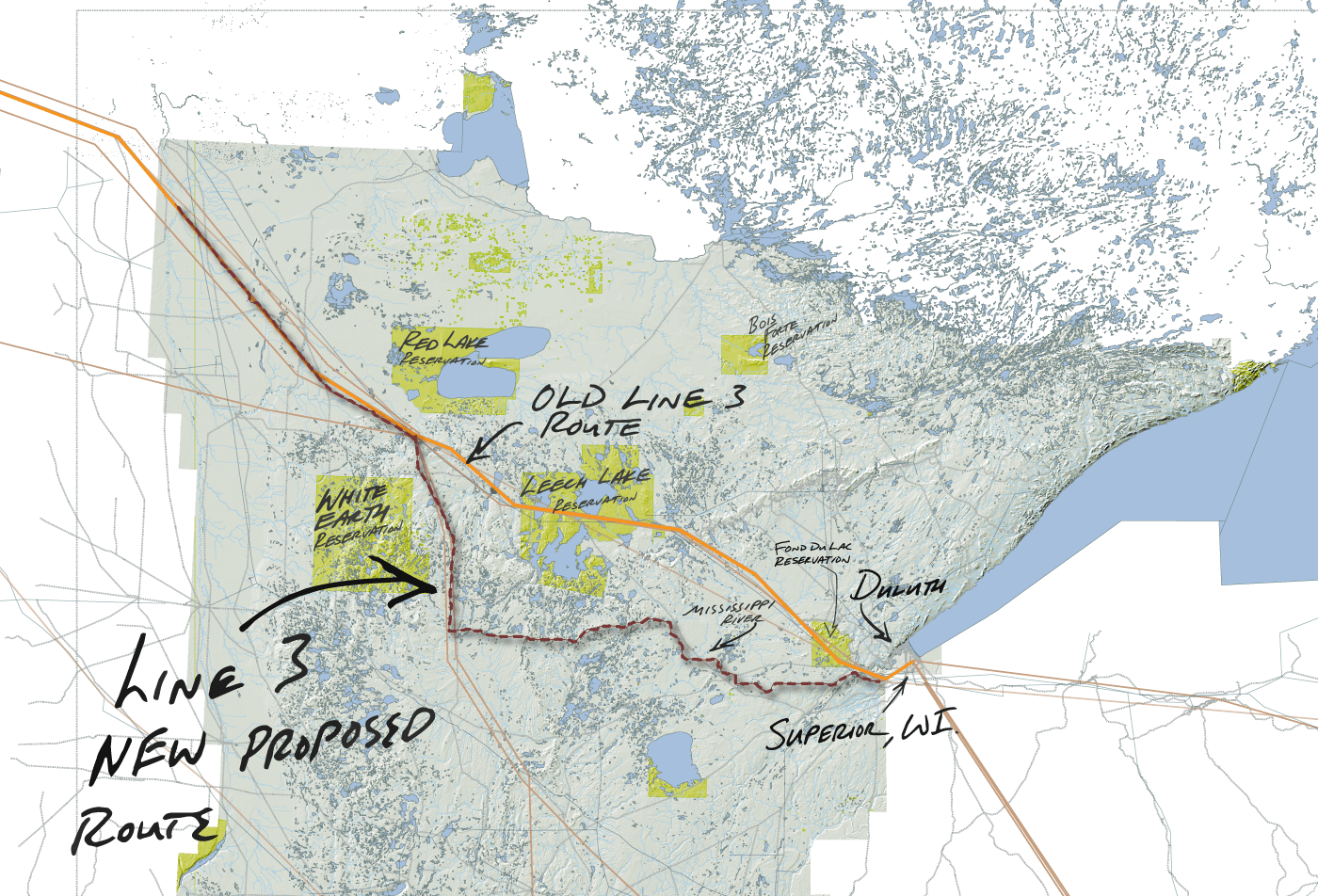Climate Curious: How could the Line 3 oil pipeline affect our climate?

Go Deeper.
Create an account or log in to save stories.
Like this?
Thanks for liking this story! We have added it to a list of your favorite stories.
Welcome to Climate Curious, where we answer your most pressing questions about climate change, from the complicated to the too-afraid-to-ask. Got a question you’re dying to ask? Share it here. And while you’re there, vote for the other questions you think we should tackle next.
How much would the Enbridge Line 3 pipeline increase the temperature of the Earth if it does what it is designed to do?
— Peter Truitt, St. Paul
Minnesota regulators approved Enbridge Energy's request to replace its aging Line 3 oil pipeline in 2018, though the company faces several legal hurdles before it can begin construction.
The new pipeline is designed to carry 760,000 barrels of heavy crude per day from Canada's oil sands, which roughly translates to 11 billion gallons of refined gasoline per year.
And the emissions associated with extracting, transporting, refining and burning all that fuel in cars, trucks and airplanes is an issue that opponents of the project bring up — regularly.
Turn Up Your Support
MPR News helps you turn down the noise and build shared understanding. Turn up your support for this public resource and keep trusted journalism accessible to all.
We can estimate what those emissions would be because, as part of the approval process for the Line 3 replacement project, experts conducted a detailed life-cycle analysis of the pipeline. They calculated the emissions that might come from cutting down trees along the pipeline route; the emissions that might come from using electricity to pump oil through the pipeline; and the emissions that would come from burning that oil in vehicles, among several other calculations.
(Find an in-depth look at those calculations on page 5-463 of this environmental review document.)
The total emissions estimates fall within a range, but the societal costs of climate change that might result from Line 3 could reach $287 billion over the next 30 years, according to the project’s environmental impact statement. Estimating the societal costs is the standard way of evaluating the impact of a project like this — and because of that, the analysis doesn't include things like resultant global temperature rise, for instance.
Here’s an explanation from the document:
“Recognizing that the totality of climate change is not attributable to any single action, but is exacerbated by a series of actions, this analysis does not attempt to directly link the emissions from a single action to an incremental change in climate.”
There’s another aspect to answering this question that gets even more complicated: Does replacing the Line 3 pipeline enable more oil production and consumption? Or will that production and consumption happen regardless of whether this pipeline is built?
Stefan Unnasch, a consultant who studies the life cycles of pipelines, said the answer is most likely the latter.
"If the pipeline isn't built, the oil will find a market some other way," he said last year, in this more detailed story about the debate over Line 3’s potential emissions.
Climate activists know that stopping one pipeline won’t stop the flow of oil — so all over the world, they work to delay or stop every single potential flow of fossil fuels that might further contribute to the sea level rise, extreme heat and flooding that stem from climate change.
Climate Curious: What do you want to know about climate change, but were too afraid to ask?
Our readers and listeners have been sending us some terrific questions about climate change — and, in voting rounds, have let us know which questions they are most curious about. Now it’s our turn.
We’re beginning to answer these pressing questions on climate on the air and online.
Still have questions about climate change? Submit them below and be sure to check back and tune in.
Dear reader,
Political debates with family or friends can get heated. But what if there was a way to handle them better?
You can learn how to have civil political conversations with our new e-book!
Download our free e-book, Talking Sense: Have Hard Political Conversations, Better, and learn how to talk without the tension.



